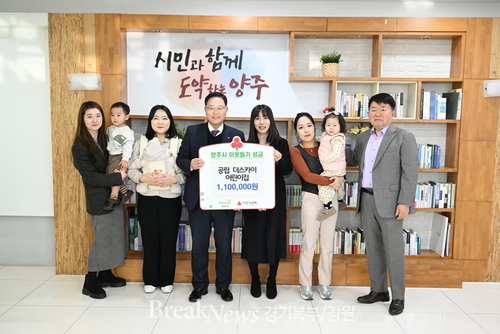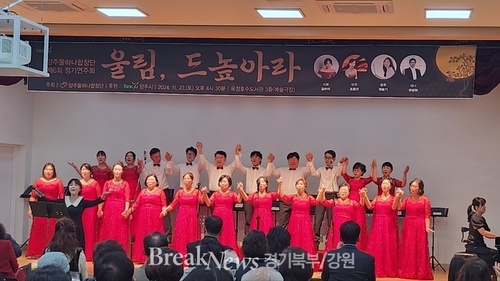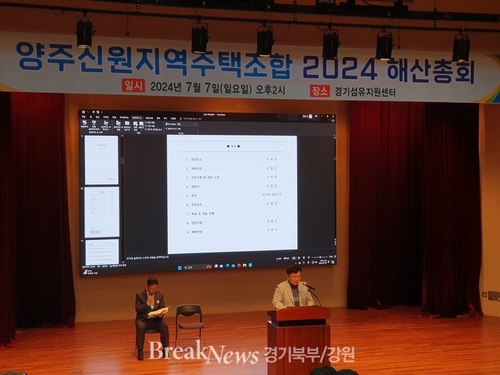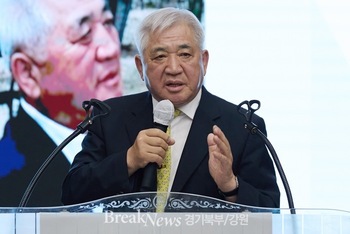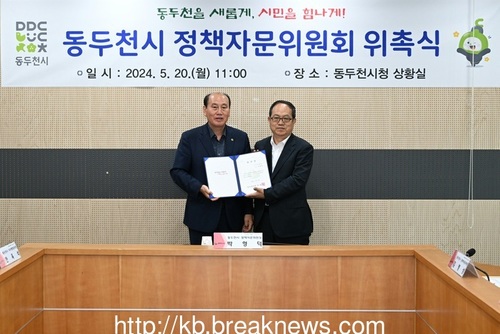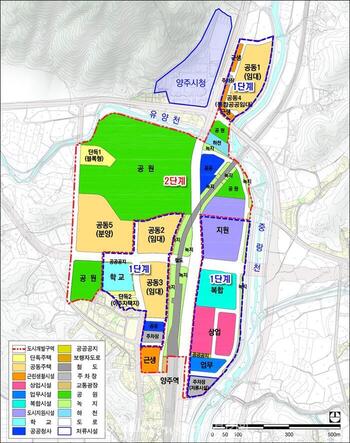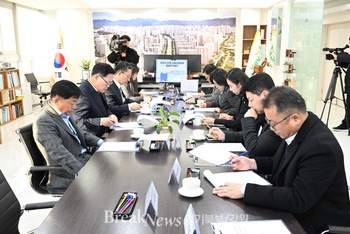한국정책경영연구원, "고향사랑기부금 활용"...지방소멸위기대응 첫 민간 싱크탱크 개설
- 전국 243개 광역·기초 지방자치단체 고향사랑기부제 도입 준비 박차
- 240개 지자체 조례 제정 추진, 56개 지자체 기금운용심의위 및 답례품 선정위 운영
- 한국정책경영연구원 지방소멸대응
한국정책경영연구원, "고향사랑기부금 활용"...지방소멸위기대응 첫 민간 싱크탱크 개설- 전국 243개 광역·기초 지방자치단체 고향사랑기부제 도입 준비 박차
|
 ▲ <사진제공=한국정책연구원>지방소멸위기대응 ©경기북부/강원 브레이크뉴스 |
[김준호 기자 = 강원남부] 지방자치 발전과 지역사회문제 해결에 앞장서 온 사단법인 한국정책경영연구원이 민간 싱크탱크 최초로 지방소멸대응센터를 개설했다. 이를 통해 연구원은 고향사랑기부금을 마중물로 한 지역발전전략을 수립·전파함으로써 지방소멸위기를 극복하는데 결정적으로 기여하겠다는 포부를 밝혔다.
급격한 인구감소와 지속적 인구유출이 지방소멸을 불러올 수 있다는 위기감이 전국적으로 확산되고 있다. 현재 정부는 지방소멸이 우려되는 지자체를 각각 인구감소지역(89개), 관심지역(18개)으로 지정해 관리하고 있다.
전국 226개 시·군·구 가운데 절반에 가까운 지자체(107곳, 46.8%)가 소멸위기에 직면한 것이다. 이에 정부는 올해부터 앞으로 10년간 매년 정부출연금 1조원(2022년 7500억원)을 투입하는 지방소멸대응기금을 조성, 총 122개 지자체(광역 15개, 기초 107개)에 배분하기로 했다. 그런데 이런 톱다운(Top-Down)식 대응만으로는 급격하게 진행되고 있는 지방소멸위기를 제때 극복하기 힘들 수도 있다는 주장이 제기되고 있다.
한국정책경영연구원 지방소멸대응센터 공동센터장을 맡고 있는 신승근 한국공학대 교수는 “인구유출과 산업공동화로 세입이 줄어들어 만성적 재정난을 겪는 지자체의 현실을 고려할 때 중앙정부 지원기금만으로는 근본적 치유가 힘들며, 기초 지자체가 수립한 투자계획을 중앙정부가 평가하고 이에 따라 지원 여부가 결정되는 시스템에서는 지역 특성에 맞는 맞춤형 정책을 추진하기 힘들고 도리어 정책이 획일화할 우려마저 있다”고 지적했다.
이런 가운데 2023년 1월 1일 시행을 앞둔 고향사랑기부제가 지방소멸위기 극복을 위한 새로운 대안으로 주목받고 있다. 고향사랑기부제는 민간 기부금으로 마련된 재원을 통해 지역일자리 창출, 지역특화산업의 육성·고도화, 지역방문객 증진을 위한 사업을 벌여 지방소멸위기를 효과적으로 대응하기 위해 추진되는 정책이다. 이는 기부자, 지자체, 주민, 답례품 생산자, 웹사이트 운영자, 정부 간 상호 작용 프로그램으로 주소지 이외 지자체에 10만원을 기부하면 세액공제를 통해 기부금 전액을 돌려받고 지자체는 기부자에게 3만원 상당의 답례품을 제공하는 방식으로 운영된다.
이에 따라 전국의 광역·기초 지자체 상당수가 고향사랑기부제 시행을 앞두고 준비에 박차를 가하고 있다. 올해 11월 현재 서울·경기를 제외한 모든 광역 지자체가 전담팀을 구성하고 조례 제정·기부금 확보 및 답례품 개발전략 등에 관한 연구용역을 수행했으며 10월 27일 경북 구미시의회가 고향사랑기부제 시행을 위한 조례를 통과시킨 것을 필두로 전국 55개 기초 지자체가 관련 조례를 제정했고, 185개 지자체가 입법 예고한 상태이다.
또 경기 가평군, 충북 단양군, 충남 예산군, 경남 진주시, 전북 전주시 등 11개 기초 지자체가 고향사랑기금운영심의위원회를 출범시켰고 강원 정선군, 경북 의성군, 전북 군산시 등 45개 기초 지자체가 답례품 발굴 및 선정을 위한 답례품선정위원회를 운영하고 있다.
고향사랑기부제와 비슷한 제도로는 일본의 고향납세제도가 있다. 이는 고향 또는 연고지 등 기부자가 원하는 지역에 일정 금액을 기부하면 2000엔을 넘는 부분에 대해 소득세 환급, 주민세 공제를 해주고 지역 특산품을 선물하는 제도다. 이를 통해 구마모토현 미나미오쿠니쵸, 미야자키현 미야코노조시 등 소멸위기에 처했던 지역들이 지역관광상품이나 특산물 브랜드화를 추진해 지역발전을 도모했으며 상당한 성과를 거둔 것으로 알려져 있다.
윤재관 지방소멸대응센터 공동센터장은 “고향사랑기부제로 지방재정을 확충할 수 있고 이를 통해 각 지자체는 자기 지역의 특성을 반영해 맞춤형 발전전략을 추진할 수 있는 자체 수단을 확보하게 되며, 지역관할구역 내에서 생산된 물품으로 답례품을 구성해야 하기 때문에 지역특산품에 대한 새로운 시장과 판로를 개척할 수도 있다”면서 고향사랑기부제가 “지역경제 활성화의 강력한 동력이 될 것”이라고 강조했다.
윤재관 공동센터장은 “지역 간 재정격차로 수도권 지자체와 비수도권 지자체 간 갈등이 커지고 있는 현실을 고려할 때, 고향사랑기부제는 국민들의 자발적 기부와 참여로써 납세 기반이 튼튼한 대도시의 재원을 소외지역으로 갈등 없이 이전시키는 효과를 보인다”고 분석했다.
고향사랑기부제가 성공하려면 지역비전·로컬브랜딩·아이디어 개발 등에 기초한 기부금 확보 전략, 지역상품화 및 지역경제 활성화를 위한 사용전략, 답례품 개발 및 마케팅 전략 등이 사전에 준비돼 있어야 한다. 이와 관련해 한국정책경영연구원 지방소멸대응센터는 제도 시행과 함께 전국 지자체가 각 지역의 특성에 맞는 기부금 확보 전략, 지역상품화 및 지역경제 활성화 전략을 수립하고 추진할 수 있게 지원할 것이란 의지를 전했다.
이와 함께 한국정책경영연구원은 ‘고향사랑기부금 운용성과 평가지표’ 개발을 추진하고 있다. 이를 통해 전국 지자체의 기부금 확보·사용 및 답례품 전략과 성과를 비교 분석·평가해 우수 지자체를 발굴하고 모범사례를 전파하며 기부금 부실운용을 사전 예방하는데 이바지할 계획이다. 또 고향사랑기부제를 통해 마련된 재원이 지역 내 생산과 소비, 내발적 발전을 이룰 수 있게 하는 지역발전전략을 각 지자체 현실에 맞게 수립하는 정책 컨설팅을 진행하고 있다.
이훈희 한국정책경영연구원 원장은 “제도 시행을 앞둔 현재의 조건에서 각 지자체가 빠르게 고향사랑기부제를 이해하고 활용전략과 방안을 갖출 수 있게 교육과 컨설팅, 로컬브랜딩 등 다각적 지원을 아끼지 않을 것”이라며 “이 밖에도 앞으로 연구원은 자율적이고 창의적인 민간 싱크탱크의 강점을 십분 발휘해 전국 지자체가 지역소멸위기 극복과 지속가능한 지역발전을 위한 자체역량을 충분히 육성할 있도록 아낌없이 지원하겠다”는 생각을 밝혔다.
한국정책경영연구원 개요, 한국정책경영연구원은 2018년 설립된 민간 싱크탱크로서 경제, 산업, 복지 분야 정책 패러다임을 선도하는 연구원이다.
*아래는 위 기사를 '구글 번역'으로 번역한 영문 기사의 [전문]입니다. '구글번역'은 이해도 높이기를 위해 노력하고 있습니다. 영문 번역에 오류가 있을 수 있음을 전제로 합니다.
*The following is [the full text] of the English article translated by 'Google Translate'. 'Google Translate' is working hard to improve understanding. It is assumed that there may be errors in the English translation.
[Reporter Joon-ho Kim = South Gangwon] The Korea Institute of Policy Management, which has taken the lead in developing local autonomy and resolving community issues, opened the first private think tank, the Local Disappearance Response Center. Through this, the Institute revealed its aspirations to make a decisive contribution to overcoming the crisis of local extinction by establishing and disseminating a regional development strategy with the Hometown Love Donation as a priming.
A sense of crisis is spreading across the country that rapid population decline and continued population exodus can lead to local extinction. Currently, the government is managing local governments that are concerned about local extinction by designating them as declining population areas (89 areas) and areas of interest (18 areas), respectively.
Nearly half of the 226 cities, counties and districts across the country (107, 46.8%) are facing the crisis of extinction. Accordingly, the government decided to create a local extinction response fund that invests 1 trillion won in government contributions (750 billion won by 2022) every year for the next 10 years from this year and distribute it to a total of 122 local governments (15 metropolitan areas and 107 basic ones). However, it is argued that it may be difficult to overcome the rapidly progressing local extinction crisis with only this top-down response.
Shin Seung-geun, a professor at Korea University of Engineering and co-director of the Center for Local Disappearance at the Korea Institute of Policy Management, said, “Considering the reality of local governments suffering chronic financial difficulties due to population exodus and deindustrialization reducing revenues, it is difficult to fundamentally heal with the central government support fund alone. In a system where the central government evaluates the investment plan established by the local government and decides whether or not to support it, it is difficult to promote customized policies tailored to the characteristics of the region, and there are even concerns that policies may become uniform,” he pointed out.
In the midst of this, the hometown love donation system, which is about to be implemented on January 1, 2023, is attracting attention as a new alternative to overcome the local crisis. The Hometown Love Donation Program is a policy that is implemented to effectively respond to the crisis of local extinction by conducting projects to create local jobs, foster and advance local specialized industries, and increase local visitors through financial resources prepared by private donations. This is an interaction program between donors, local governments, residents, return gift producers, website operators, and the government. If you donate 100,000 won to a local government other than your address, the full donation will be returned through tax deduction, and the local government will provide a return gift worth 30,000 won to the donor. operated in a way
Accordingly, many metropolitan and basic local governments across the country are accelerating preparations ahead of the implementation of the hometown love donation system. As of November of this year, all metropolitan local governments except Seoul and Gyeonggi formed a dedicated team and carried out research services on the enactment of ordinances, securing donations, and developing strategies for return gifts. 55 local governments across the country enacted related ordinances, and 185 local governments announced legislation.
In addition, 11 local governments, including Gapyeong-gun in Gyeonggi-do, Danyang-gun in North Chungcheong Province, Yesan-gun in South Chungcheong Province, Jinju-si in Gyeongnam-do, and Jeonju-si in North Jeolla Province, launched the Hometown Love Fund Operation Deliberation Committee. There is a gift selection committee.
A system similar to the hometown love donation system is Japan's hometown tax payment system. This is a system in which a donor makes a donation of a certain amount to a desired region, such as his/her hometown or hometown, and receives a refund of income tax and a resident tax deduction for the portion exceeding 2,000 yen and presents a local specialty product. Through this, areas that were in danger of extinction, such as Minamiokuni-cho in Kumamoto Prefecture and Miyakonojo City in Miyazaki Prefecture, promoted regional development by promoting local tourism products and special product brands, and it is known that significant results were achieved.
Yoon Jae-gwan, head of the Joint Center for Local Extinction Response Center, said, “Local finances can be expanded through the donation of love for hometown, and through this, each local government will secure its own means to promote customized development strategies by reflecting the characteristics of its region. Since the return gift must be composed of goods produced in the region, it is possible to open up new markets and sales channels for local specialties,” he said, stressing that the hometown love donation system will “be a powerful driving force for revitalizing the local economy.”
Jae-gwan Yoon, head of the joint center, said, “Considering the reality that conflicts between metropolitan and non-metropolitan local governments are growing due to the financial gap between regions, the Hometown Love Donation Program is a voluntary donation and participation of the people, and the financial resources of large cities with a strong tax payment foundation are transferred to marginalized areas. It shows the effect of relocating without it.”
In order for the Hometown Love Donation Program to be successful, a strategy for securing donations based on regional vision, local branding, and idea development, a strategy for using local products and revitalizing the local economy, and a strategy for developing return gifts and marketing must be prepared in advance. In this regard, the Korea Institute of Policy Management and Management’s Local Disappearance Response Center expressed its will to support local governments across the country to establish and promote strategies for securing donations, local commercialization, and revitalization of the local economy, suitable for the characteristics of each region, along with the implementation of the system.
In addition, the Korea Institute of Policy Management is promoting the development of the ‘Love Hometown Donation Performance Evaluation Index’. Through this, it plans to contribute to preventing poor management of donations in advance by discovering excellent local governments, disseminating best practices, by comparing, analyzing, and evaluating the strategies and performance of securing and using donations and return gifts from local governments across the country. In addition, policy consulting is being conducted to establish a regional development strategy tailored to the reality of each local government so that the funds raised through the hometown love donation system can be used to achieve regional production, consumption, and internal development.
Lee Hoon-hee, president of the Korea Institute for Policy Management, said, “Under the current conditions ahead of the implementation of the system, we will spare no support from various angles, such as education, consulting, and local branding, so that each local government can quickly understand the hometown love donation system and prepare strategies and plans for its utilization.” “In addition, in the future, the Institute will fully utilize the strengths of autonomous and creative private think tanks to provide generous support so that local governments across the country can fully develop their own capabilities for overcoming the crisis of local extinction and sustainable regional development,” he said.
Korea Institute of Policy Management, Korea Institute of Policy Management, established in 2018, is a private think tank that leads policy paradigms in the fields of economy, industry, and welfare.

- 횡성군, 고향사랑기부금 사용방안 모색...아이디어 공모전 실시
- 백영형 포천시장, 고향사랑기부제 인증 챌린지 동참
- 포천시, 고향사랑기부제 홍보 위한 CM 제작
- 서태원 가평군수 ‘고향사랑기부’ 인증 챌린지 동참
- 영월 창절사, 국가지정문화재 보물 지정 기념식
- [포토]정선군, 내 나무 심고·가꾸기 나무 나누어주기 행사 개최
- '정선'이란 특정 성명...정선군 100배 즐기기 행복 프로젝트 추진
- 동해시노인대학, 2023년 제 20기 입학식 개최
- 동해시청소년상담복지센터, 위기 청소년 조기 발굴 홍보캠페인
- 동해시티투어버스, 관광 활성화 위해...내달 1일부터 운행
- 동해시, 벚꽃 향연 색다른 볼거리....유천문화축제 개막
- 삼척시 미로정원마을, 귀농귀촌 정착...농촌에서 살아보기 프로그램
- 삼척 활기 치유의 숲, 자연·치유 분야 웰니스관광지 선정
- 박상수 삼척시장, 국도7호 우회도로 등 주요 도로사업 국가계획 반영 건의
- 동해시, 육아지원사업...2023년 북스타트 사업 운영
- 개청 43주년 동해시, 생활체육 활성화 대축전 내달 1일 개막
- 동해시, 파란만장 안묵호 마을...생활여건 개조 공모사업 선정
- 삼척 읍성도시 시간여행 타임터너... 경진대회 우수기관 선정
- 삼척시 하장면 어리, 지속가능한 농촌 교육과정 마쳐
- 수소에너지 거점도시 삼척, 수소차 보급 300대 돌파
- 삼척시 박상수시장, 민생현장 청취 ...시장과 함께하는 동네한바퀴
- 영월군, 귀농귀촌 유치 및 홍보...서울농장 3월 본격 운영 돌입
- 삼척시, 전문농업경영인 양성...농업인대학 입학식 개최
- 정선군의회, 건전한 기부문화 확산...철원군에 고향사랑기부금 기탁
- 가평군-목포시 공무원노조, 고향사랑기부제 활성화 위해 전략적 홍보활동 나서
- 가평군, ‘고향사랑기부제’ 답례품 확대...기부금 목표액 1억원
- 삼척시, 고향사랑 기부문화 활성화....행운이벤트 추진
- 농협평창군지부, 고향사랑 기부제 동참 캠페인 열어
- 영월군전자상거래연구회 연시총회 개최...신임 여혜선 대표이사 선임
- 가평군, 고향사랑기부제 40명 돌파...따뜻한 온정 전파
- 김명기 횡성군수, ‘고향사랑기부제' 릴레이 기부 동참
- 원강수 원주시장, 강원도시장군수협의회 릴레이 기부 참여
- 심규언 동해시장...고향사랑기부제 릴레이 동참
- 최명서 영월군수, 평창군에 고향사랑기부금 기탁
- 박상수 삼척시장, 고향사랑기부 릴레이...홍천군에 10만 원 기부
- 평창군, 고향사랑기부제, 첫 고액 기부자 나와...
- 박상수 삼척시장, 자매결연도시 6개 시·군·구 고향사랑기부 동참
- 동해시 심규언 시장, 자매결연도시...고향사랑기부 동참
- 경기북부 고향사랑기부제, 참여 저조 해법은?
- 영월군, 고향사랑기부제 1호 기부자...현직 장학관
- 김진태 지사, 고향사랑기부금으로 도민에게 새해 첫인사
- 삼척시, 고향사랑기부제 답례품 공급업체로 최종 23개 업체 53개 품목 선정
- 동해시, 고향사랑 기부제 답례품 선정...관련절차 마무리
- 가평군, 제2회 답례품 선정위원회 개최...공급업체 '최종 선정'
- 정선군, 고향사랑기부제 선정위원회 개최...'답례품' 확정
- 인제군, 고향사랑기부제 답례품 선정 위원 위촉식 개최
- 평창군, '12월 07일 주요군정'...2022년 하반기 중대재해처벌법 교육 실시 등
- 가평군 소년소녀합창단, 제 10주년 기념 정기연주회 개최
- 정선군, 골목경제 회복 지원사업 우수사례 선정 행정안전부 장관상 수상
- 영월군, 고향사랑 기부금 답례품 82종 선정...공급업체 공개모집
- 삼척시, '고향사랑기부제"...본격 시행 앞두고 답례품 선정위원회 개최
- 양구군, 고향사랑기부제 답례품 선정...'지역특산물·상품권' 등 37품목
- 영월군, '고향사랑 기부금 답례품'... 품목 선정 신청·접수
- 동해시,고향사랑기부제 시행 前..."출향시민 1억원 기탁"신호탄 쏘아올려
- 정선군, 지역사회보장계획 수립 공청회 개최
- 삼척시, 2023년 1월 1일 “고향사랑 기부제” 시행 준비 박차
- [포토] 평창군 방림면 화합 한마당 제37회 방림면민체육대회 개최
- 포천시, 재정운영 효율성 강화...'2023년도 예산편성 운영기준 설명회' 개최
- 김경호 도의원, 고향사랑 기부금 제도 2023년 1월 1일부터 시행











